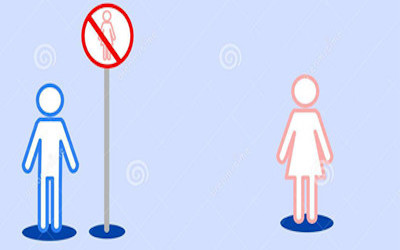PTE考生目前最大的问题之一就是练习题缺乏。除了有限的基本官方书(PLUS,Testbuilder, OG)之外
就没有题了。很多英语基础不是很扎实的同学很难找到练习材料。悉尼文波雅思PTE培训学校专门为澳洲,尤其是悉尼、墨尔本的PTE考生准备了适合PTE听力阅读练习的科学60秒。各位PTE同学可以练习PTE听力中的summarise spoken text和PTE口语中的retell lecture,PTE听力口语-科学60秒-Frosty Moss练习记笔记技巧和复述。废话少说,下面开始:
听力内容:
60秒科学节目(SSS)是科学美国人网站的一套广播栏目,英文名称:Scientific American – 60 Second Science,节目内容以科学报道为主,节目仅一分钟的时间,主要对当今的科学技术新发展作以简明、通俗的介绍,对于科学的发展如何影响人们的生活环境、健康状况及科学技术,提供了大量简明易懂的阐释。
This is Scientific American — 60-Second Science. I’m Christopher Intagliata.
As in many other fields, gender bias pervades the sciences. Men score higher starting salaries, have more mentoring, and have better odds of being hired. Studies show they’re also perceived as more competent than women in STEM fields. And new research reveals that men are more likely to receive excellent letters of recommendation, too.
“Say, you know, this is the best student I’ve ever had.” Kuheli Dutt, a social scientist and diversity officer at Columbia University’s Lamont campus. Compare those excellent letters, she says, to a merely good letter: “The candidate was productive, or intelligent, or a solid scientist or something that’s clearly solid praise,” but nothing that singles out the candidate as exceptional or one of a kind.
Dutt and her colleagues studied more than 1,200 letters of recommendation for postdoc positions in geoscience. They were all redacted for gender and other identifying information, so Dutt and her team could assign them a score without knowing the sex of the student. They found that female applicants were only half as likely to snag superlative letters, compared to their male counterparts. That includes letters of rec from all over the world, and written by, yes, men and women. The findings are in the journal Nature Geoscience.
Dutt says they were not able to evaluate the actual scientific qualifications of the applicants using the archival data. But she says the results still suggest women in geoscience are at a potential disadvantage from the very beginning of their careers—starting with those less-than-outstanding letters of rec.
“We’re not trying to assign blame or criticize anyone or call anyone consciously sexist or something like that. Rather, the point is to use the results of this study to open up meaningful dialogues on implicit gender bias, be it at a departmental level or an institutional level or even a discipline level.” Which may lead to some recommendations for the letter writers themselves.
Thanks for listening for Scientific American — 60-Second Science Science. I’m Christopher Intagliata.
墨尔本悉尼文波PTE原创首发
更多精彩请持续关注微信wenbo_tv2。





